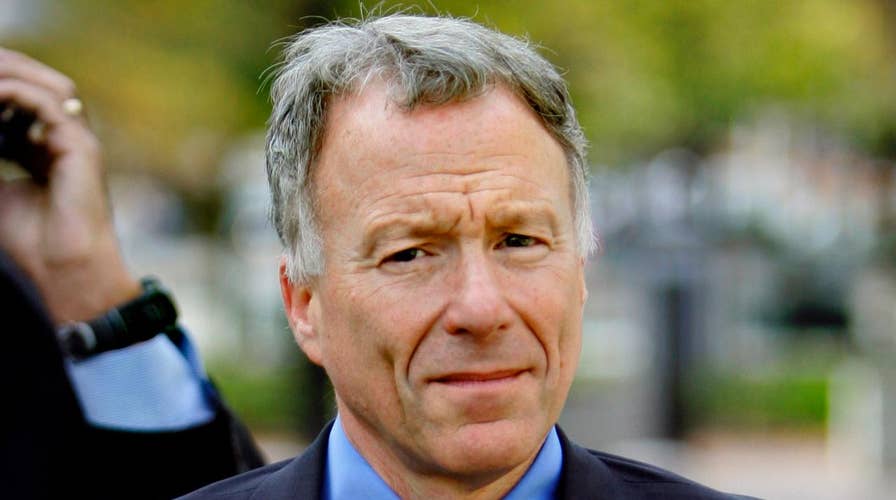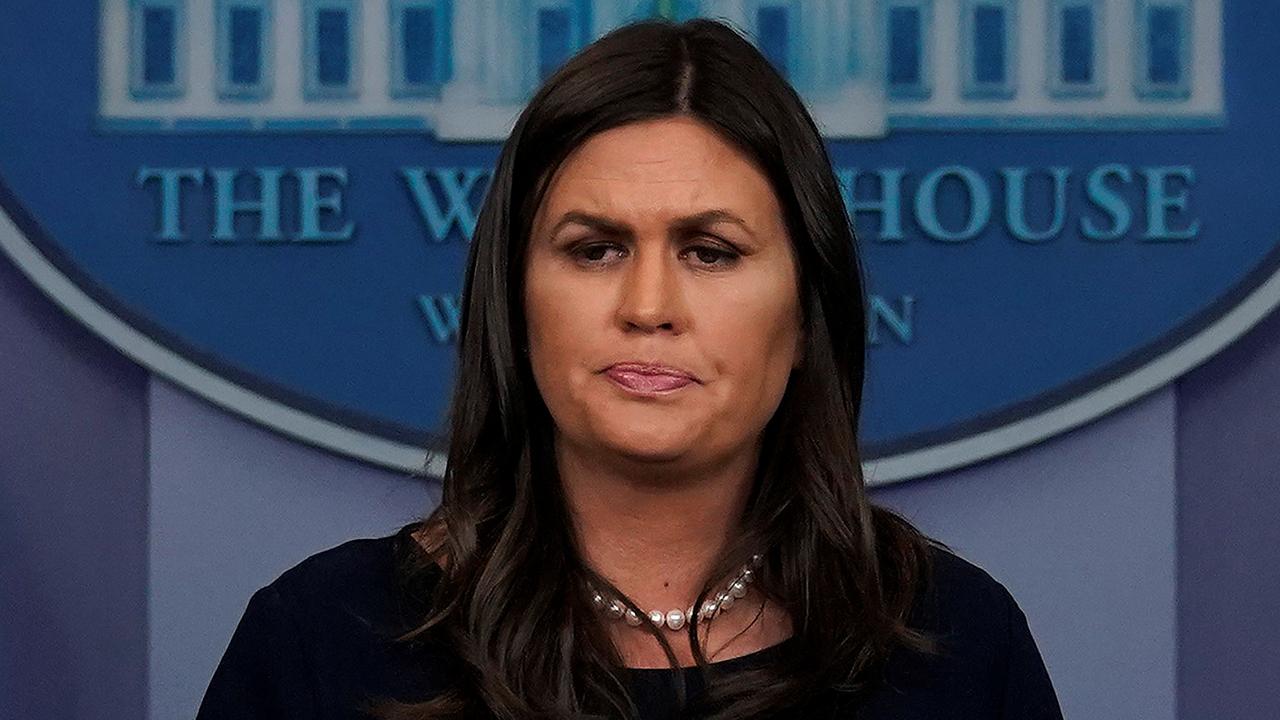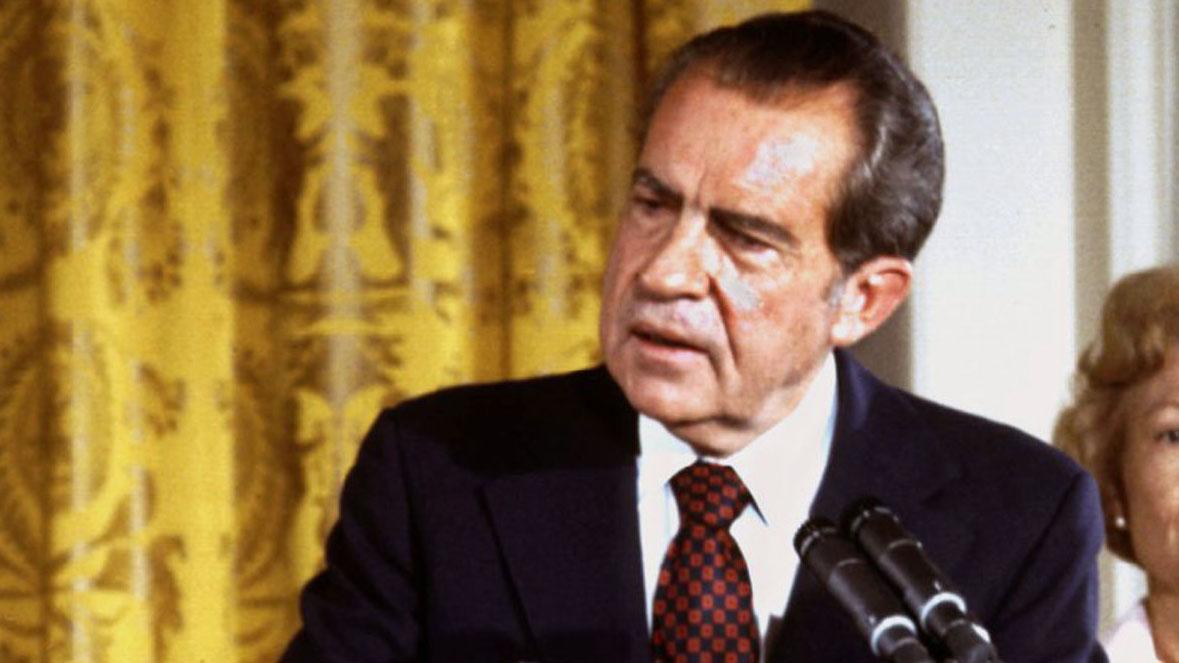Trump pardons former Cheney chief of staff Scooter Libby
Libby was convicted in 2007 of perjury, obstruction of justice and making false statements stemming from an investigation into the leaking of the covert identity of CIA officer Valerie Plame.
President Trump’s pardon of Lewis “Scooter” Libby caught some people by surprise. Libby had been convicted of perjury and obstruction of justice in the investigation into the Valerie Plame affair, which involved the leaking of information on a CIA agent.
As Trump put it in a White House statement, “I don’t know Mr. Libby, but for years I have heard that he has been treated unfairly. Hopefully, this full pardon will help rectify a very sad portion of his life.”
Scooter Libby said he was immensely grateful, but not everyone was pleased. House Minority Leader Nancy Pelosi said “President Trump’s pardon of Scooter Libby makes clear his contempt for the rule of law.”
The pardon power itself comes from Article II, Section 2 of the Constitution, which states the President “shall have Power to grant Reprieves and Pardons for Offences against the United States.” Since then, the power has been used by all presidents except William Henry Harrison, who died not long after taking office, and James Garfield, who was assassinated not long after taking office.
Since the start, there’s been a long history of significant and controversial presidential pardons.
George Washington, for instance, pardoned people who took part in the Whiskey Rebellion, a protest against a whiskey tax.
Thomas Jefferson pardoned violators those convicted under the Sedition Act, a harsh law signed by his predecessor, John Adams.
James Polk pardoned John Fremont, who’d been convicted of mutiny. Fremont would go on to become the first Republican candidate for President in 1856.
James Buchanan pardoned Brigham Young, who had taken part in the Mormon Rebellion in Utah against the U.S. government.
Andrew Johnson pardoned three men who had been charged with conspiring to murder his predecessor, Abraham Lincoln.
Ulysses Grant signed the Amnesty Act of 1872, which pardoned many former Confederate leaders (though not the top leaders).
Warren Harding pardoned controversial socialist labor leader Eugene Debs, who’d been convicted under the 1917 Espionage Act.
Richard Nixon commuted the sentence of labor leader Jimmy Hoffa, who’d been convicted of fraud and bribery. A few years later, Hoffa disappeared mysteriously.
In perhaps the most famous case of all, Gerald Ford gave a full and unconditional pardon to his predecessor Richard Nixon, who’d resigned in the Watergate scandal. Nixon had not been tried at that point, and some believe Ford’s pardon was a major reason he lost the 1976 election.
Jimmy Carter pardoned Peter Yarrow, of the folk group Peter, Paul and Mary. Yarrow had been convicted of taking liberties with a 14-year-old girl.
Ronald Reagan pardoned FBI official Mark Felt, who turned out to be “Deep Throat”—a secret news source in the Watergate scandal—and George Steinbrenner, owner of the New York Yankees.
Bill Clinton pardoned Patty Hearst, kidnap victim who got involved in bank robbery; Marc Rich, a controversial financier; Susan McDougal, who’d been a partner with Bill and Hillary Clinton in the Whitewater deal; and Roger Clinton, Bill’s half-brother who served time for cocaine possession.
George W. Bush commuted the sentence of, but did not fully pardon, Scooter Libby himself, who had been Chief of Staff to his Vice President Dick Cheney. It’s believed his refusal to grant a full pardon was a source of friction between Bush and Cheney.
Barack Obama pardoned Ian Schrager, owner of famed disco club Studio 54, baseball star Willie McCovey, and Chelsea Manning--who’d once been known as Bradley Manning--the soldier who gave hundreds of thousands of documents to WikiLeaks.
Which brings us up to President Trump, who previously raised some eyebrows when he pardoned Joe Arpaio, the former Arizona sheriff who’d been convicted of contempt of court
President Trump still has some time to go, so it’s almost certain we haven’t seen the last of his high profile pardons.















































